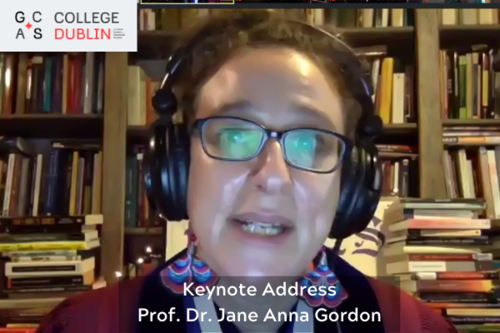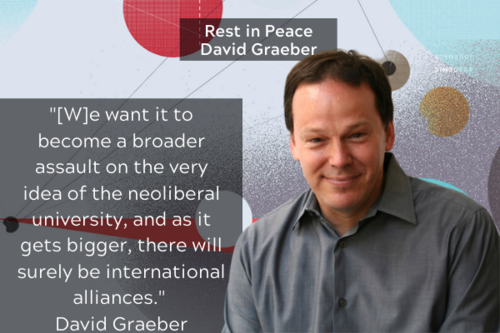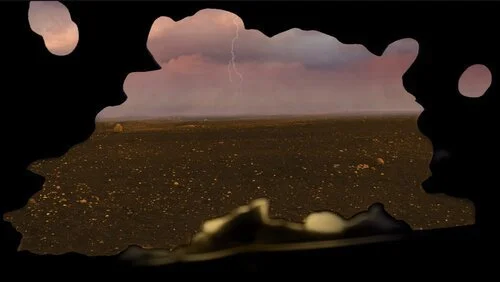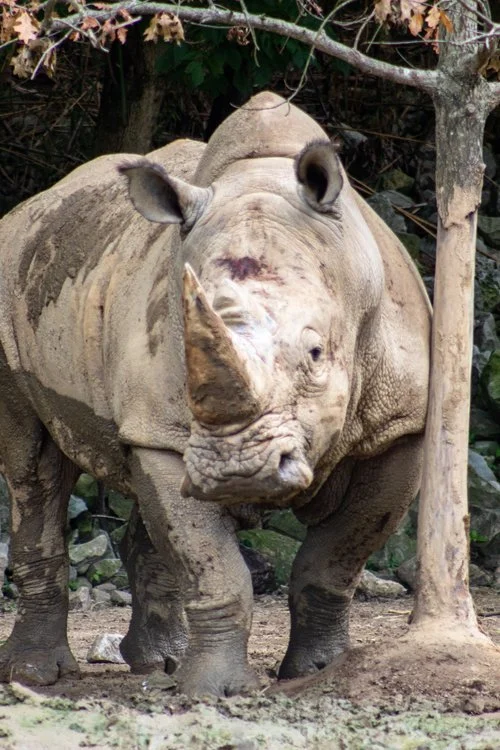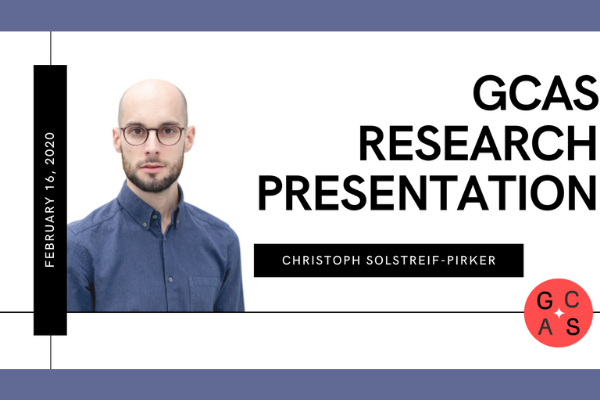MAGAZINE
GCAS Magazine
GCAS Magazine is an inter/transdisciplinary digital platform for initiating dialogues, and a creative space which embraces various domains and modes of thought and communication across the humanities and the arts. Within this shared intellectual landscape, every piece is an opportunity to present and articulate ideas, experiences, and explorations that embody dynamic and lively forms of reflection and inquiry on personal and collective levels.
About GCAS Magazine
In 2013, Creston Davis founded The Global Center for Advanced Studies as an alternative to the neoliberally-oriented model of education that continues to plague the modern academy. It was his goal to create a space where unique people could share unique ideas without feeling obliged to make their thoughts part of the larger “marketplace” of ideas, but to instead communicate outside the bounds of the economic tradition.
Today, there are GCAS nodes located on nearly every continent, and people are seeing the writing on the wall: higher education must fundamentally transform to continue to thrive. Part of that requires sharing well-articulated ideas quickly when events arise or immediate commentary is needed to better understand our world.
GCAS Magazine, while an extension of the Global Center for Advanced Studies, is also a digital destination where independent journalism thrives. GCAS Magazine stands apart from other outlets for its commitment to publish unique voices, art, and ideas at the point of need in our dynamic zeitgeist.
Contribute
As a reader-supported magazine, we invite everyone to share their uniquely human voices. We are open, but not limited, to essays, narratives, commentaries, or interviews, with the possibility of mixing text with visual and audio media.
You can contribute by pitching your piece and sharing how you envision it by sending an email to our team at [email protected]. We will review your pitch and contact you to discuss the next steps if it aligns with the magazine’s vision and guidelines.
Simultaneous submissions are accepted in all forms. We ask that you let us know your work is a simultaneous submission in your pitch and to notify us immediately if the piece is accepted for publication elsewhere. We also accept pieces that have been published elsewhere, either in full or in part, so long as the work is the author’s and the previous outlet has given permission for syndication.
You can also submit your pitch and writing under “Name Withheld” or under a pseudonym if it fosters honesty and makes you feel comfortable given the topic you are writing about. If you chose to do this, please let us know in your pitch.
Magazine
Part 2 of the GCAS interview with Andreas Wilmes.
Dr. Jane Anna Gordon delivers the Keynote address at GCAS’ first graduation.
Part 3 of the GCAS conversation between Andreas WIlmes and Andrew P. Keltner
One week after elections Andreas Wilmes offers some factual insights into the conversation concerning election fraud and the possible future of politics and technology in US democracy.
Blockchain specialist discusses a strategy by Dr. Timothy Bryar
This is the final part of a four series interview between Andreas Wilmes and Andrew Keltner, both researchers at GCAS. The words here are projected to be part of a larger project to understand technology and US politics.
An Open Letter from the GCAS Community Concerning the Violent Assault on Democracy: January 6, 2021
Andrew P. Keltner, PhD researcher Interviews Dr. Mark R. Reiff - Topics include: Liberalism, Illiberalism, Identity Politics, and Ethics, among others.
GCAS’s Latino America shows the world through art how to think about the impact of political history and through such a simple thing as dust.
Written by K.S. Arsh: Marxism and Language
Guitarist Luis Sierra tells about his career, past, present, and future and of his musical influences and education.
Public Lectures
Prof. Andrew Feenberg reflects on COVID-19.
Joshua Clover, originally delivered this lecture in early 2014 at GCAS. Clover is a writer and a Professor of English and Comparative Literature at the University of California Davis.
Dr. Firoze Manji (GCAS Research Fellow) discusses the protests and what it means to be human.
Prof. Gabbard discusses the situation from a Brazilian perspective in the GCAS “America in Revolt” Series.
Boris Franklin’s talk in the GCAS “America in Revolt” Series in which he discusses his journey from prison to building democracy and education in the USA.
Prof. Dr. Evelyn Simien (University of Connecticut) delivers a lecture in the GCAS “America in Revolt” Series. June 13, 2020
Dr. Greg Williams, PhD Lectures on "How Truth Claims of Voter Fraud Influence Public Policy: A Political Discourse Analysis" in the GCAS Public Lecture Series.
"Is America Possible?": Protest, Pandemic, and Planetary Possibility” by Prof. Dr. Corey D. B. Walker, Wake Forest University and Distinguished Research Fellow at GCAS.
Renowned cultural critic, Prof. Henry Giroux discusses the protests with Anthony Clemons, Andrew Keltner, and Creston Davis.
Interviews
GCAS College PhD Researcher Andrew Keltner interviews Andrew Feenberg, PhD. The interview discusses topics including the democratization of technology, capitalism and technology, technophobia, and the singularity, among others.
Interview conducted by Anastasia Nicéphore, PhD
{A journey from Philosophy to Fantasy Fiction and Back} An interview conducted by Anastasia Nicéphore and Jacob E. Andrade.
Hear from a pioneer in an underserved area of Suicide Prevention, founder of Attempted Suicide Help, and author of Attempted Suicide: The Essential Guidebook for Loved Ones, and TedX speaker.
Audio
Pulitzer Prize Winner, Chris Hedges’s Talk @ GCAS’ “Democracy Rising-Philadelphia” Conference @ the University of Pennsylvania’s Slought.
Open Source Books and Articles
Energy and Experience: An Essay in Nafthology by By Antti Salminen & Tere Vadén
Chapter: “Emancipation, Freedom or Taxonomy? What does it mean to be African?”, Firoze Manji, Research Fellow - GCAS





